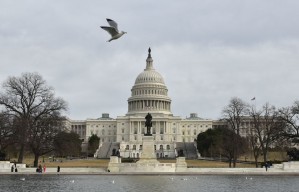Half of all new moms in the US now breastfeed their babies for the recommended minimum of six months, according to a report released by the US Centers for Disease Control and Prevention on Wednesday, ahead of breast feeding week from August 1 - 7.
The report showed a great improvement, with the number of babies who were breast-fed from birth rose from 71 percent to 77 percent. Meanwhile, almost 50 percent of babies are still being breast-fed at least sometime at 6 months of age, up from 35 percent in 2000. The report noted that the number of babies still breast-feeding at the age of one year rose from 16 percent to 27 percent.
"The period right after a baby is born is a critical time for establishing breast-feeding," Janet Collins, director of CDC's division of nutrition, physical activity and obesity, said in an agency news release.
The findings are "great news for the health of our nation because babies who are breast-fed have lower risks of ear and gastrointestinal infections, diabetes and obesity, and mothers who breast-feed have lower risks of breast and ovarian cancers," added CDC director Dr. Tom Frieden.
"Also, breastfeeding lowers health care costs," Frieden says. "Researchers have calculated that $2.2 billion in yearly medical costs could be saved if breastfeeding recommendations were met. It is critical that we continue working to improve hospital, community and workplace support for breastfeeding mothers and babies and realize these cost savings."
World Breastfeeding Week is an annual event with the goal of encouraging mothers to exclusively breast feed for the first six months of her babies life. This year, the goal and theme of World Breastfeeding Week, "Breastfeeding Support: Close to Mothers," is to encourage more community support and peer counseling.








